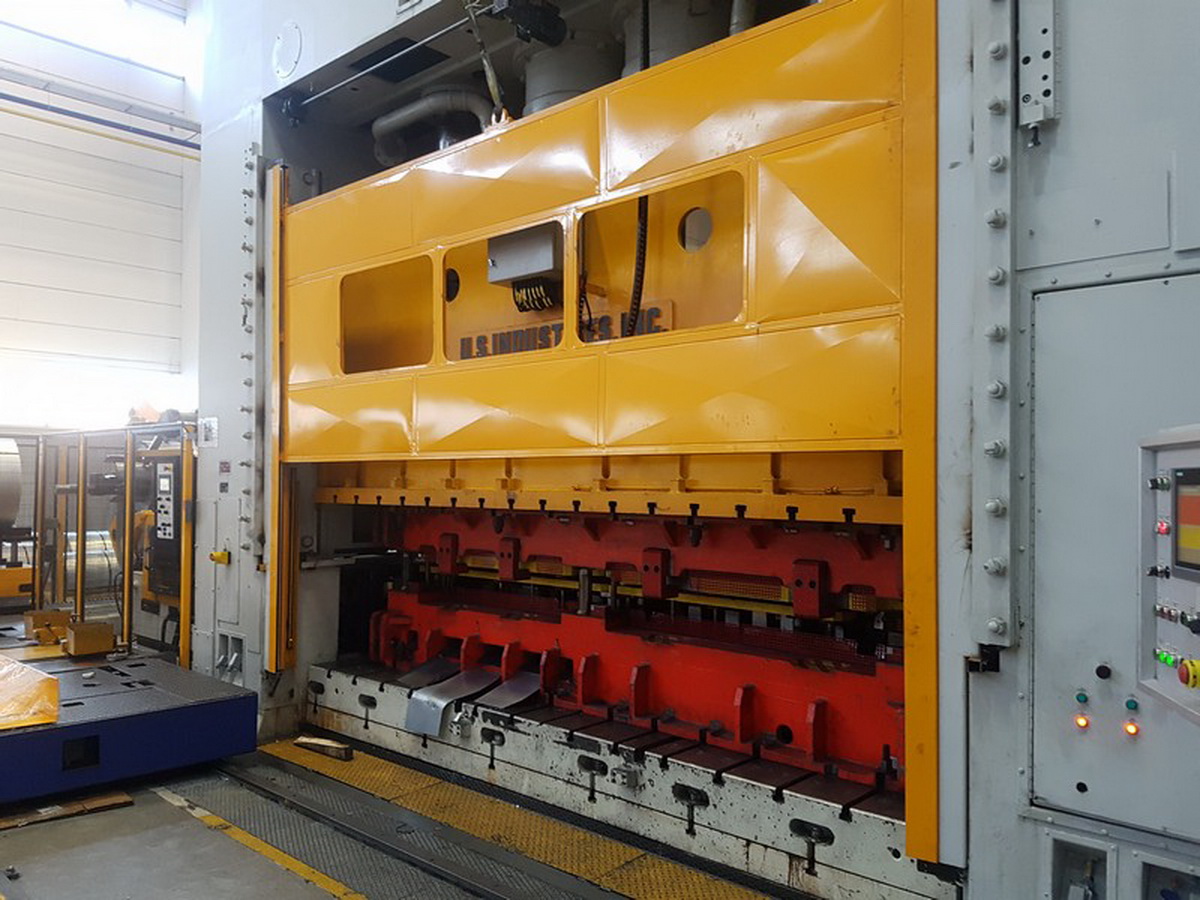In today’s fast-paced and tech-driven world, industrial machinery plays a critical role in countless industries. From food processing plants to metal fabrication facilities, these mechanical marvels serve a multitude of purposes. But how well do you know these machinery types and the specific applications they’re designed for? Buckle up as we journey through the realms of industrial machinery, exploring different types and their specific applications.
İçindekiler Tablosu
Exploring Different Types of Industrial Machinery for Specific Applications
Industrial machinery comes in all shapes and sizes, each designed for a particular application. To fully grasp this diverse field, it’s vital to break it down into categories. You’ll soon realize the world of industrial machinery is like an iceberg—what you see is just the tip.

Material Handling Equipment: The Movers and Shakers of Industries
The industrial scene is incomplete without material handling equipment. These are the true powerhouses, ensuring seamless transportation, storage, and control of materials within the industrial premises. They range from conveyor systems, forklifts, to overhead cranes.
Conveyor Systems: The Unseen Backbone of Industries
In many industries, the transfer of goods is as essential as the production process itself. That’s where conveyor systems come in. They are the lifeline of warehouses, production plants, and shipping facilities, transferring goods swiftly from one point to another.
Forklifts: The Mighty Load Lifters
Forklifts are the muscles in any warehouse or storage facility. Their primary function? To lift and transport heavy materials over short distances. With their versatility, they can stack goods at heights, unload trucks, and maneuver in tight spaces – tasks that would be time-consuming and strenuous for manual labor.
Overhead Cranes: Heavy Duty Handling
When it comes to handling bulky or extremely heavy materials, overhead cranes hold the baton. Commonly found in construction sites and factories, these cranes lift, lower, and transport heavy loads over large areas with minimal effort.
Industrial Robots: The High-tech Assistants
The rise of automation has ushered in a new era of industrial robots, and they’re more than just fancy gadgets. These sophisticated machines perform tasks with precision, speed, and consistency, surpassing human capabilities.
Articulated Robots: Flexible and Functional
Articulated robots have revolutionized many industries, thanks to their flexibility. With arms that mimic human movements, they handle tasks such as welding, painting, and assembly with remarkable precision.
Cartesian Robots: The Precision Experts
Cartesian robots, with their linear movement, are the kings of precision and speed. They dominate industries requiring high-precision tasks, such as CNC machining, injection molding, and even the burgeoning field of 3D printing.
Machine Tools: The Shapers and Makers
From simple drills to complex milling machines, machine tools are the heart of manufacturing. They shape, cut, grind, and finish a plethora of materials into desired shapes and sizes.
Lathe Machines: The Age-old Craftsmen
One of the oldest machine tools, the lathe, stands as a testament to our technological evolution. By rotating a workpiece against a cutting tool, it shapes materials into precise cylindrical forms, making it a staple in industries such as automotive and aerospace.
Milling Machines: Multi-tasking Marvels
Milling machines are the jacks-of-all-trades in the manufacturing world. They cut and shape solid materials like metal and wood, and with their multiple axes of movement, they can create intricate parts with precision.
Drilling Machines: Boring Through Barriers
Drilling machines are the go-to tools for creating holes in a variety of materials. With a range of types and sizes, they serve numerous industries, from metalworking and woodworking to oil drilling.
FAQs
1. What factors should I consider when choosing industrial machinery for my business?
Consider factors such as your industry type, production volume, budget, space, and power requirements, and whether you want automated or manual machines.
2. Are there safety regulations for operating industrial machinery?
Yes, safety regulations for operating machinery exist and vary depending on your location. They aim to minimize accidents and ensure the welfare of operators.
3. How often should industrial machinery be maintained?
Maintenance frequency depends on the type of machine, its usage, and the manufacturer’s recommendations. Regular maintenance is key to extending a machine’s life and ensuring optimal performance.
4. What is the role of automation in industrial machinery?
Automation boosts productivity, efficiency, and accuracy in industrial machinery. It reduces human error and enhances safety by performing dangerous tasks.
5. Where can I buy industrial machinery?
You can buy industrial machinery from manufacturers, distributors, or online platforms. Some also offer rental services for businesses not ready to invest in buying.
6. What’s the importance of training in operating industrial machinery?
Training ensures that operators understand how to use machinery safely and efficiently. It also helps in diagnosing and troubleshooting issues, leading to reduced downtime.
Conclusion
Exploring different types of industrial machinery for specific applications opens a world of endless possibilities. Each machine, be it a conveyor system, a forklift, a robot, or a lathe, plays an essential role in making our industries what they are today. As we stride into the future, we can only expect these machines to evolve further, creating new opportunities and efficiencies in the industrial sector.


Leave A Comment